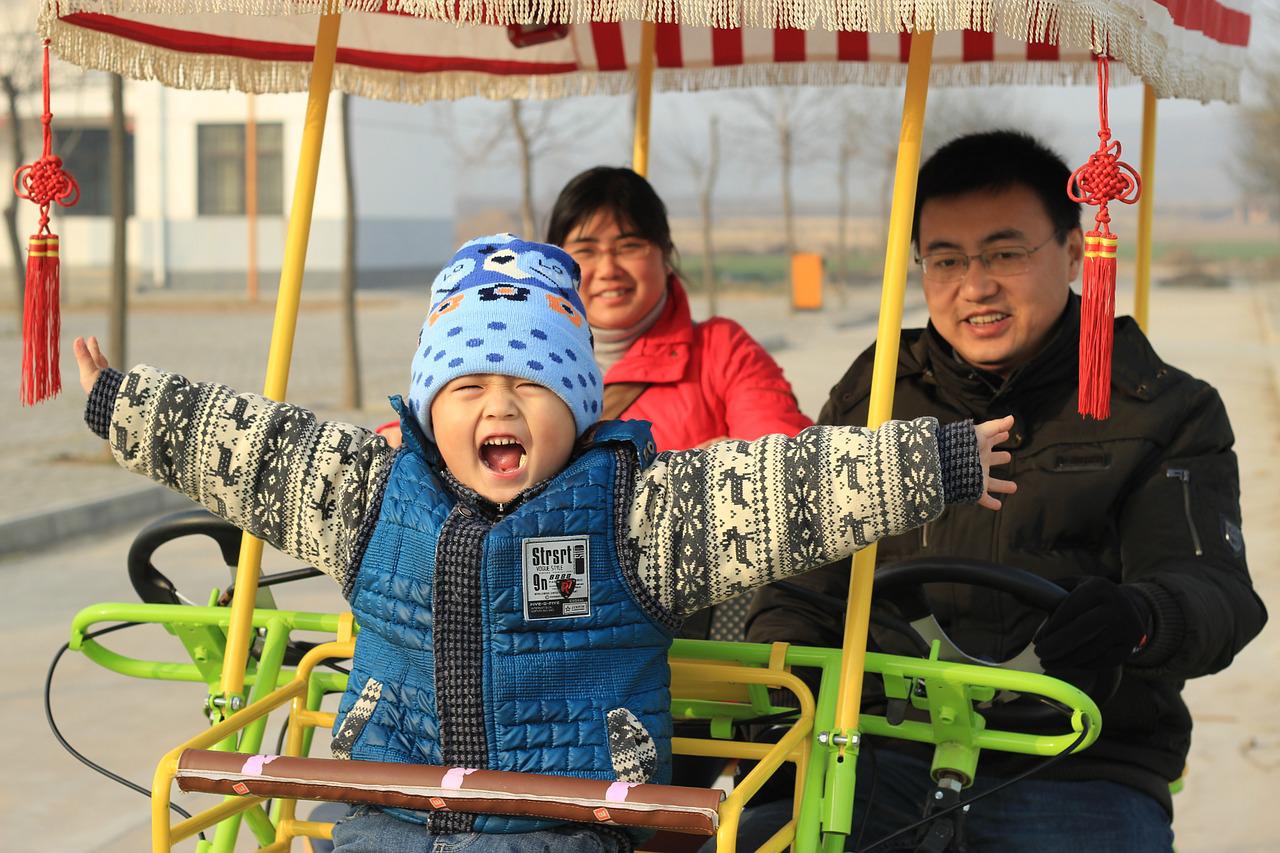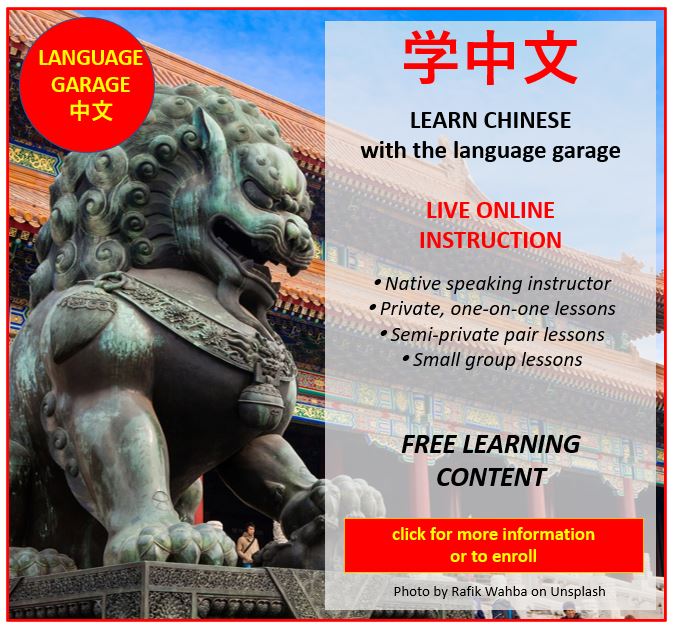In this post we’ll cover lots of Chinese vocabulary and structures that will help you talk about your moods, emotions, and feelings.
你感觉怎么样? Nǐ gǎn jué zěn me yàng? How do you feel?
Let’s start with some questions you can ask to find out how people feel.
- 你现在感觉怎么样?
Nǐ xiàn zài gǎn jué zěn me yàng?
How are you feeling right now? - 你没事吧?
Nǐ méi shì ba?
Are you okay?
- 一切都好吗?
Yí qiē dōu hǎo ma?
Is everything okay? - 你心情好/不好 吗?
Nǐ xīn qíng hǎo / bù hǎo ma?
Are you in a good mood or a bad mood? - 你玩儿得开心吗?
Nǐ wánr de kāi xīn ma?
Are you having a good time? - 怎么了?
Zěn me le?
What’s the matter? - 你喜欢这个食物/电影/聚会吗?
Nǐ xǐ huan zhè gè shí wù / diàn yǐng / jù huì ma?
Are you enjoying the food / the film / the party?
我很开心。 Wǒ hěn kāi xīn. I’m happy!
Let’s start with some really basic happy stuff.
- 我很开心。
Wǒ hěn kāi xīn.
I am happy. - 好天气/好消息会让我开心。
Hǎo tiān qì / hǎo xiāo xi huì ràng wǒ kāi xīn.
I am happy about the weather/the good news. - 这首歌/好消息让我很快乐。
Zhè shǒu gē / hǎo xiāo xi ràng wǒ hěn kuài lè.
This song/Good news makes me happy. - 我今天心情特别好。
Wǒ jīn tiān xīn qíng tè bié hǎo.
I’m in a really good mood today. - 灿烂的阳光让我心情很好。
Càn làn de yáng guāng ràng wǒ xīn qíng hěn hǎo.
I’m in a good mood because of the sunshine. - 好天气总是让我心情愉快。
Hǎo tiān qì zǒng shì ràng wǒ xīn qíng yú kuài.
Nice weather always puts me in a good mood. - 你为什么笑?
Nǐ wèi shén me xiào?
Why are you smiling? - 我笑是因为我很开心。
Wǒ xiào shì yīn wèi wǒ hěn kāi xīn.
I’m smiling because I’m happy. - 你为什么笑?
Nǐ wèi shén me xiào?
Why are you laughing? - 我笑是因为这段视频很搞笑。
Wǒ xiào shì yīn wèi zhè duàn shì pín hěn gǎo xiào.
I’m laughing because this video is funny.
我很难过! Wǒ hěn nán guò! I’m sad!
Now let’s cover some basic unhappy things.
- 我很难过。
Wǒ hěn nán guò.
I am sad. - 我今天有点不舒服。
Wǒ jīn tiān yǒu diǎn bù shū fu.
I’m feeling a bit down today. - 天气/坏消息让我不开心。
Tiān qì / Huài xiāo xi ràng wǒ bù kāi xīn.
I am sad about the weather/the bad news. - 这首歌/下雨总是让我心情不好。
Zhè shǒu gē / Xià yǔ zǒng shì ràng wǒ xīn qíng bù hǎo.
This song/The rain always makes me sad. - 我今天心情不好。
Wǒ jīn tiān xīn qíng bù hǎo.
I’m in a bad mood today. - 我心情不好,因为我累了。
Wǒ xīn qíng bù hǎo, yīn wèi wǒ lèi le.
I’m in a bad mood because I’m tired. - 堵车总是让我心情很糟糕。
Dǔ chē zǒng shì ràng wǒ xīn qíng hěn zāo gāo.
Traffic always puts me in a bad mood. - 你为什么哭?
Nǐ wèi shén me kū?
Why are you crying? - 我哭是因为我很伤心。
Wǒ kū shì yīn wèi wǒ hěn shāng xīn.
I’m crying because I’m very sad. - 我现在有点心烦意乱。
Wǒ xiàn zài yǒu diǎn xīn fán yì luàn.
I’m a little upset now. - 我对我的女朋友/男朋友很生气。
Wǒ duì wǒ de nǚ péng you / nán péng you hěn shēng qì.
I’m upset with my girlfriend/my boyfriend. - 我对这家餐馆/这部电影/我的朋友很失望。
Wǒ duì zhè jiā cān guǎn / zhè bù diàn yǐng / wǒ de péng you hěn shī wàng.
I’m disappointed by the restaurant / the film / my friends. - 我嫉妒你的新男朋友/女朋友。
Wǒ jí dù nǐ de xīn nán péng you / nǚ péng you.
I’m jealous of your new boyfriend/girlfriend.
我玩得很开心! Wǒ wánr de hěn kāi xīn! I’m having a great time!
If you’re doing something that you really enjoy, you could say:
- 我们在这里玩得很开心。
Wǒ men zài zhè lǐ wánr de hěn kāi xīn.
We’re having a great time here. - 我在聚会上玩得很开心。
Wǒ zài jù huì shàng wánr de hěn kāi xīn.
I had a great time at the party. - 很高兴见到你!
Hěn gāo xìng jiàn dào nǐ!
It was wonderful to see you! - 我真的很喜欢和朋友们在一起。
Wǒ zhēn de hěn xǐ huan hé péng you men zài yì qǐ.
I really enjoy spending time with my friends. - 我们今天玩得很开心。
Wǒ men jīn tiān wánr de hěn kāi xīn.
We enjoyed ourselves very much today. - 我玩得很开心。
Wǒ wánr de hěn kāi xīn.
I’m having a lot of fun. - 我总是和朋友们玩得很开心。
Wǒ zǒng shì hé péng you men wánr de hěn kāi xīn.
I always have fun with my friends. - 我们玩儿得非常尽兴!
Wǒ men wánr de fēi cháng jìn xìng!
We all had a blast at the game!
我的旅行让我激动兴奋。 Wǒ de lǚ xíng ràng wǒ jī dòng xīng fèn. I’m excited about my trip.
If you’re excited about something, you may want to say:
- 我的旅行/新工作让我激动兴奋。
Wǒ de lǚ xíng / xīn gōng zuò ràng wǒ jī dòng xīng fèn.
I’m excited about my trip/my new job. - 我期待着周末/看这部电影。
Wǒ qī dài zhe zhōu mò / kàn zhè bù diàn yǐng.
I’m looking forward to the weekend/seeing this film. - 什么会让你激动兴奋?
Shén me huì ràng nǐ jī dòng xīng fèn?
What are you excited about? - 你期待做什么?
Nǐ qī dài zuò shén me?
What are you looking forward to doing? - 我迫不及待地想见我的朋友。
Wǒ pò bù jí dài de xiǎng jiàn wǒ de péng you.
I can’t wait to see my friends. - 骑山地自行车很刺激。
Qí shān dì zì xíng chē hěn cì jī.
Riding a mountain bike is exciting. - 这里有很多让人兴奋的事情做。
Zhè lǐ yǒu hěn duō ràng rén xīng fèn de shì qíng zuò.
There are lots of exciting things to do around here. - 我非常渴望读那本书。
Wǒ fēi cháng kě wàng dú nà běn shū.
I’m very eager to read that book. - 我对我的新工作很有激情。
Wǒ duì wǒ de xīn gōng zuò hěn yǒu jī qíng.
I’m very enthusiastic about my new job.
我很无聊。 Wǒ hěn wú liáo. I’m bored.
Of course, life isn’t only fun and excitement. You will probably experience plenty of times when you want to say:
- 我今天真的很无聊。
Wǒ jīn tiān zhēn de hěn wú liáo.
I’m really bored today. - 这部电影很无聊!
Zhè bù diàn yǐng hěn wú liáo!
This film is boring! - 我只是想整天躺在那里看电视。
Wǒ zhǐ shì xiǎng zhěng tiān tǎng zài nà lǐ kàn diàn shì.
I just feel like lying around and watching TV all day. - 我什么都不想做。
Wǒ shén me dōu bù xiǎng zuò.
I don’t feel like doing anything. - 我厌倦了糟糕的天气。
Wǒ yàn juàn le zāo gāo de tiān qì.
I’m tired of the bad weather. - 我厌倦了我的工作。很无聊。
Wǒ yàn juàn le wǒ de gōng zuò. hěn wú liáo.
I’m tired of my job. It’s very dull. - 这音乐使我恼火。
Zhè yīn yuè shǐ wǒ nǎo huǒ.
This music annoys me. - 你现在烦死我了!
Nǐ xiàn zài fán sǐ wǒ le !
You’re annoying me right now! - 我受不了这首歌。
Wǒ shòu bù liǎo zhè shǒu gē.
I can’t stand this song. - 这个声音/光线/气味让我心烦。
Zhè gè shēng yīn / guāng xiàn / qì wèi ràng wǒ xīn fán.
The sound/light/smell is getting on my nerves.
我有很多心事。 Wǒ yǒu hěn duō xīn shì. I have a lot on my mind.
Sometimes it’s hard for us to focus because we’re thinking of something else.
- 你好像心烦意乱。
Nǐ hǎo xiàng xīn fán yì luàn.
You seem distracted. - 你有什么心事吗?
Nǐ yǒu shén me xīn shì ma?
Is there something on your mind? - 我很忙。我忙死了。
Wǒ hěn máng. wǒ máng sǐ le.
I’m very busy. I feel overwhelmed. - 我担心我的先生/太太/朋友。
Wǒ dàn xīn wǒ de xiān sheng / tài tɑi / péng you.
I’m worried about my husband/my wife/my friend. - 我感到有点沮丧。
Wǒ gǎn dào yǒu diǎn jū sàng.
I feel a little depressed. - 我担心我的工作。
Wǒ dàn xīn wǒ de gōng zuò.
I’m anxious about my job. - 我很紧张,因为我得去医院。
Wǒ hěn jǐn zhāng, yīn wèi wǒ děi qù yì yuàn.
I’m nervous because I have to go to the hospital. - 我担心我的母亲/父亲/儿子/女儿。
Wǒ dàn xīn wǒ de mǔ qīn / fù qīn / ér zi / nǚ ér.
I’m worried about my mother/my father/my son/my daughter. - 我不能专心于我的工作。
Wǒ bù néng zhuān xīn yú wǒ de gōng zuò.
I can’t focus on my work. - 我有点混乱。我需要集中精力。
Wǒ yǒu diǎn hùn luàn. Wǒ xū yào jí zhōng jīng lì.
I’m confused. I need to concentrate. - 我在这里不舒服。
Wǒ zài zhè lǐ bù shū fu.
I’m uncomfortable here. - 这个地方/谈话让我感到不舒服。
Zhè gè dì fāng / tán huà ràng wǒ gǎn dào bù shū fu.
This place/conversation makes me uncomfortable.
我害怕! Wǒ hài pà! I’m afraid!
There are lots of ways to talk about things that you’re frightened of.
- 我怕黑/蜘蛛。
Wǒ pà hēi / zhī zhū.
I’m afraid of the dark / spiders. - 这部电影太恐怖了!
Zhè bù diàn yǐng tài kǒng bù le !
This film is terrifying! - 我要做噩梦了。
Wǒ yào zuò è mèng le.
I’m going to have nightmares. - 你怕什么?
Nǐ pà shén me?
What are you afraid of? - 我恐高。
Wǒ kǒng gāo.
I’m afraid of heights. - 我看到蛇吓了一跳。
Wǒ kàn dào shé xià le yí tiào.
I was startled when I saw the snake. - 我看到老鼠,尖叫了起来。
Wǒ kàn dào lǎo shǔ , jiān jiào le qǐ lái.
I screamed when I saw a mouse. - 我吓坏了!我需要冷静冷静。
Wǒ xià huài le! Wǒ xū yào lěng jìng lěng jìng.
I’m freaking out! I need to calm down.
我很生气。 Wǒ hěn shēng qì. I’m very angry.
Some emotions are much stronger than other.
- 我现在很生气。
Wǒ xiàn zài hěn shēng qì.
I’m very angry right now. - 你为什么生气?
Nǐ wèi shén me shēng qì?
Why are you angry? - 你在生我的气吗?
Nǐ zài shēng wǒ de qì ma?
Are you angry at me? - 我对我的朋友/我的先生/我的太太/我的老板很生气。
Wǒ duì wǒ de péng you / wǒ de xiān sheng / wǒ de tài tai / wǒ de lǎo bǎn hěn shēng qì.
I’m furious with my friend/my husband/my wife/my boss. - 那张照片/那本书/那部电影让我恶心。
Nà zhāng zhào piàn / nà běn shū / nà bù diàn yǐng ràng wǒ ě xīn.
That photo/book/film disgusts me. - 那张照片/那本书/那部电影真恶心。
Nà zhāng zhào piàn / nà běn shū / nà bù diàn yǐng zhēn ě xīn.
That photo/book/film is disgusting. - 这个故事吓了我一跳。
Zhè gè gù shì xià le wǒ yí tiào.
The story horrified me. - 我被这个消息吓坏了。
Wǒ bèi zhè gè xiāo xi xià huài le.
I was horrified by the news. - 我很生气。
Wǒ hěn shēng qì.
I’m very offended. - 我的感情受到了伤害。
Wǒ de gǎn qíng shòu dào le shāng hài.
My feelings are hurt.
我后悔了。 Wǒ hòu huǐ le. I regret it.
Sometimes we do or say things that make us feel unpleasant emotions.
- 我太尴尬了!
Wǒ tài gān gà le!
I’m so embarrassed! - 我觉得自己像个傻瓜。
Wǒ jué de zì jǐ xiàng gè shǎ guā.
I feel like a fool. - 我觉得自己像个混蛋。
Wǒ jué de zì jǐ xiàng gè hún dàn.
I feel like a jerk. - 我为自己的所作所为感到内疚。
Wǒ wèi zì jǐ de suǒ zuò suǒ wéi gǎn dào nèi jiū.
I feel guilty for what I did / said. - 我很后悔这么说。
Wǒ hěn hòu huǐ zhè me shuō.
I regret saying that. - 我为冒犯你而感到难过。
Wǒ wèi mào fàn nǐ ér gǎn dào nán guò.
I feel terrible for offending you. - 我想为我的所作所为道歉。
Wǒ xiǎng wèi wǒ de suǒ zuò suǒ wéi dào qiàn.
I want to apologize for what I did / said. - 对不起,我骗了你。
Duì bu qǐ, wǒ piàn le nǐ.
I’m sorry I lied to you. - 对不起,我伤害了你的感情。
Duì bu qǐ, wǒ shāng hài le nǐ de gǎn qíng.
I’m sorry I hurt your feelings. - 你能原谅我吗?
Nǐ néng yuán liàng wǒ ma?
Can you forgive me?
我很放松。 Wǒ hěn fàng sōng. I’m relaxed.
Hopefully there are plenty of times when you feel just right.
- 我觉得很平静。
Wǒ jué de hěn píng jìng.
I feel very calm. - 我非常放松。
Wǒ fēi cháng fàng sōng.
I’m very relaxed. - 我对我的工作很满意。
Wǒ duì wǒ de gōng zuò hěn mǎn yì.
I’m very satisfied with my job. - 我为我的孩子/弟弟/妹妹感到骄傲。
Wǒ wèi wǒ de hái zǐ / dì di / mèi mei gǎn dào jiāo ào.
I feel proud of my children / my brother / my sister. - 我真为你高兴!
Wǒ zhēn wèi nǐ gāo xìng !
I’m very happy for you! - 我一点都不担心。
Wǒ yī diǎn dōu bù dàn xīn.
I’m not worried about anything at all. - 我忘记了所有的烦恼。
Wǒ wàng jì le suǒ yǒu de fán nǎo.
I have forgotten all of my troubles. - 我满足于坐在这里,看着大海/天空/树木。
Wǒ mǎn zú yú zuò zài zhè lǐ, kàn zhe dà hǎi / tiān kōng / shù mù.
I’m content just sitting here and looking at the ocean / the sky / the trees. - 我现在很舒服。
Wǒ xiàn zài hěn shū fu.
I’m very comfortable right now. - 我感到非常自在。
Wǒ gǎn dào fēi cháng zì zài.
I feel perfectly at ease.
Do you want to learn Chinese?
Check out our other posts on Chinese language, culture, and more. And if you’re looking for convenient and affordable live Chinese lessons with a real teacher, check out The Language Garage. Our lessons are given online in a virtual classroom, so it doesn’t matter where you live or work – we can come to you. And we have flexible options, with a free trial so that you can decide if there’s a fit. Check us out!






